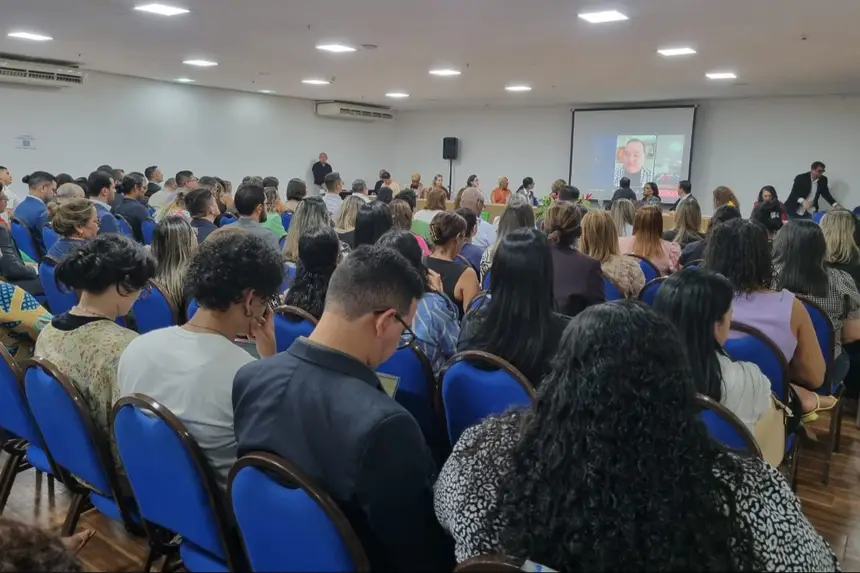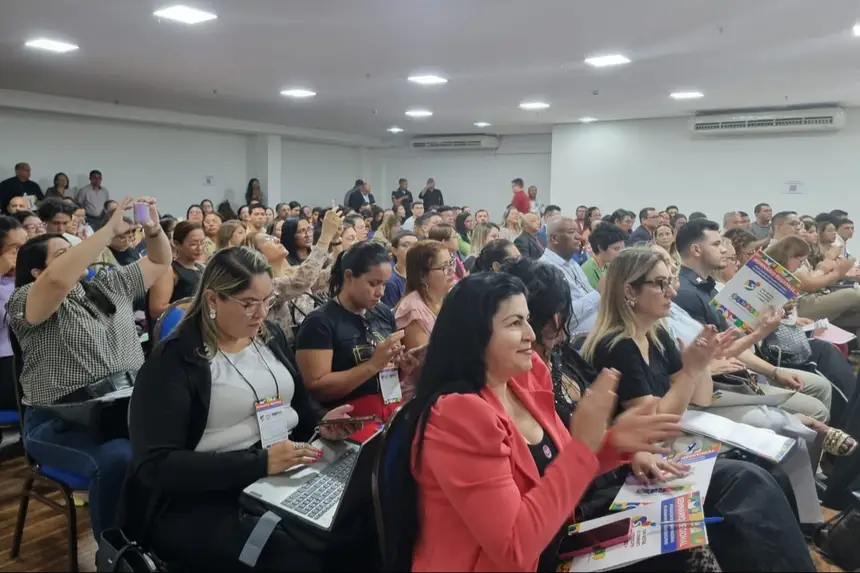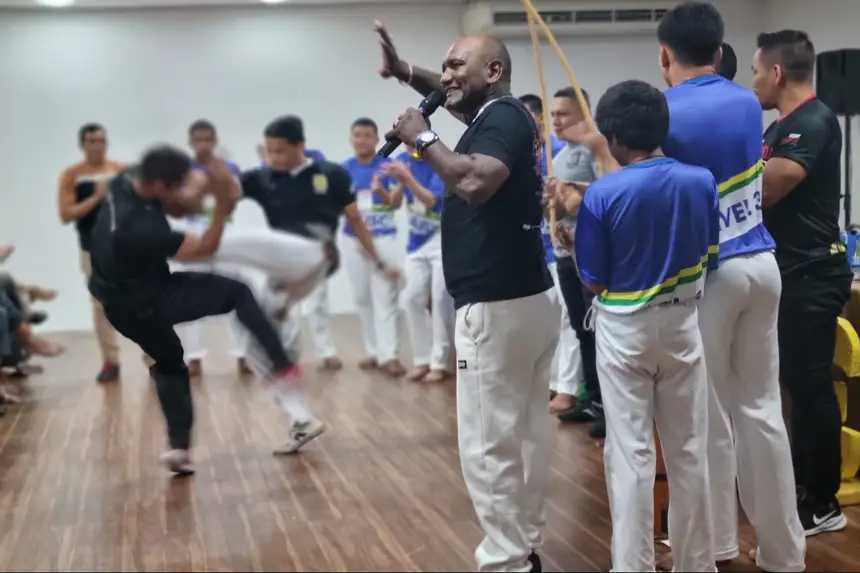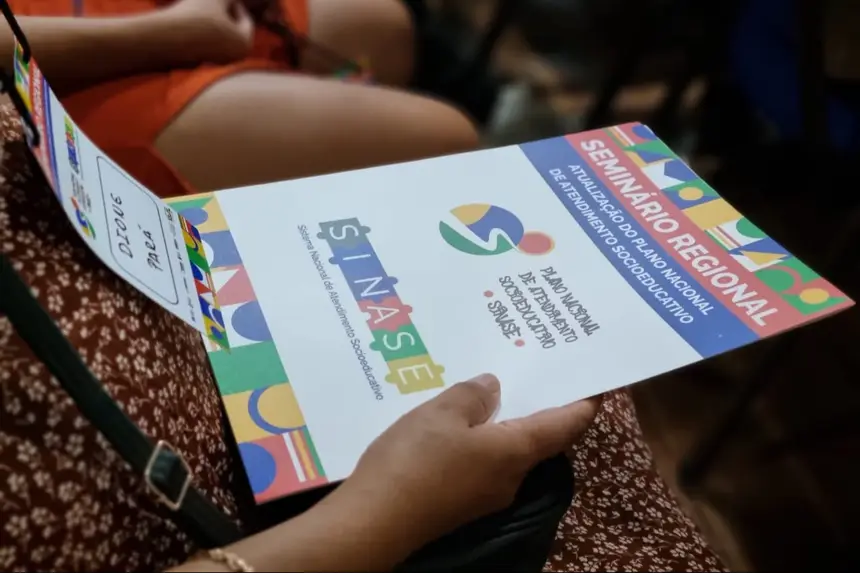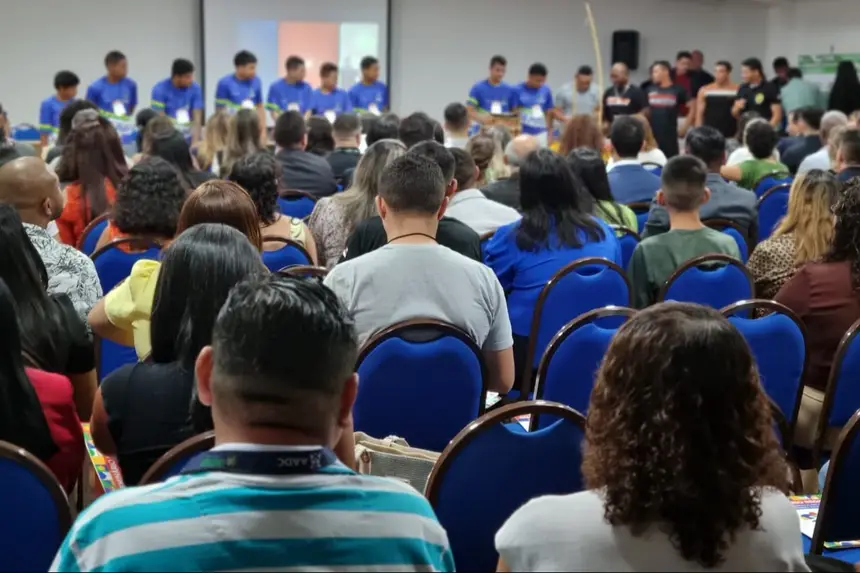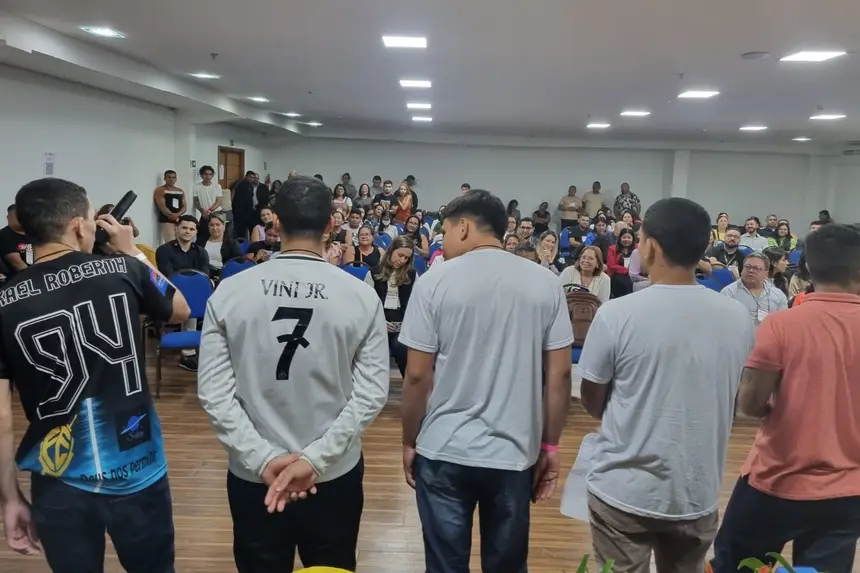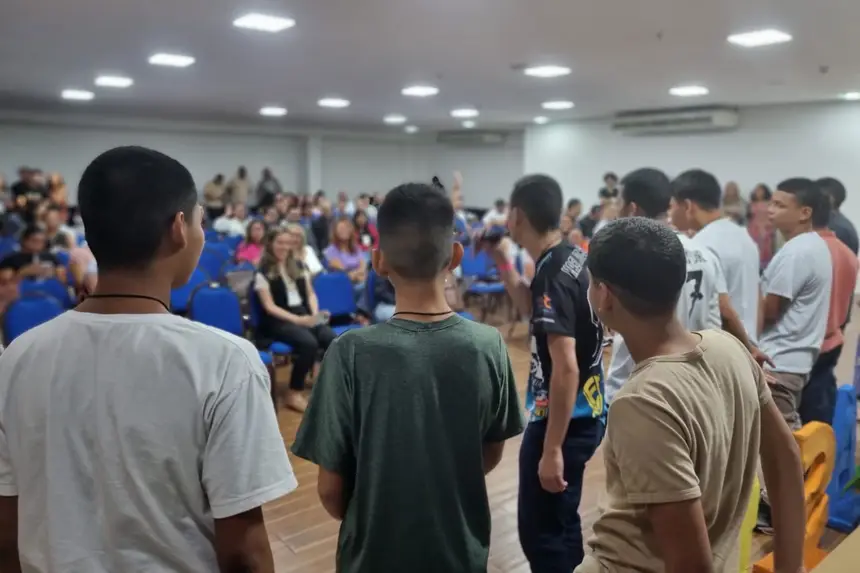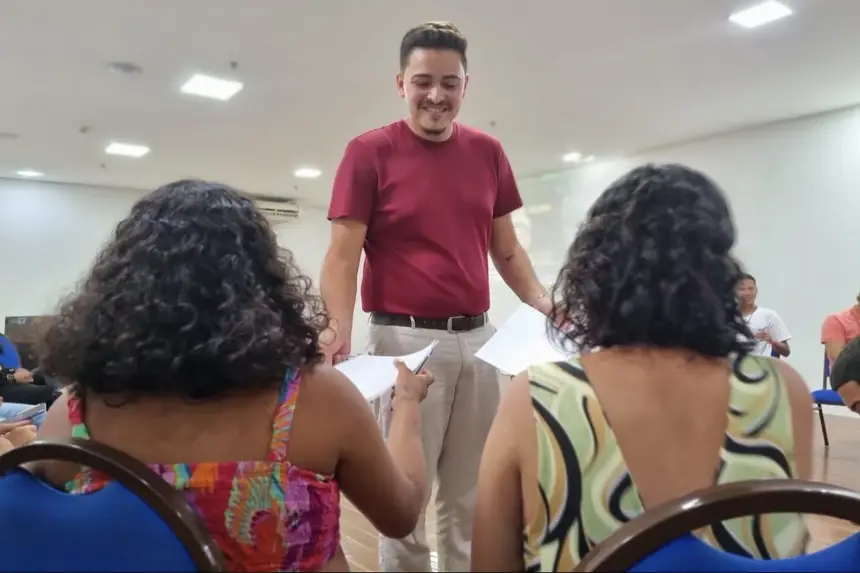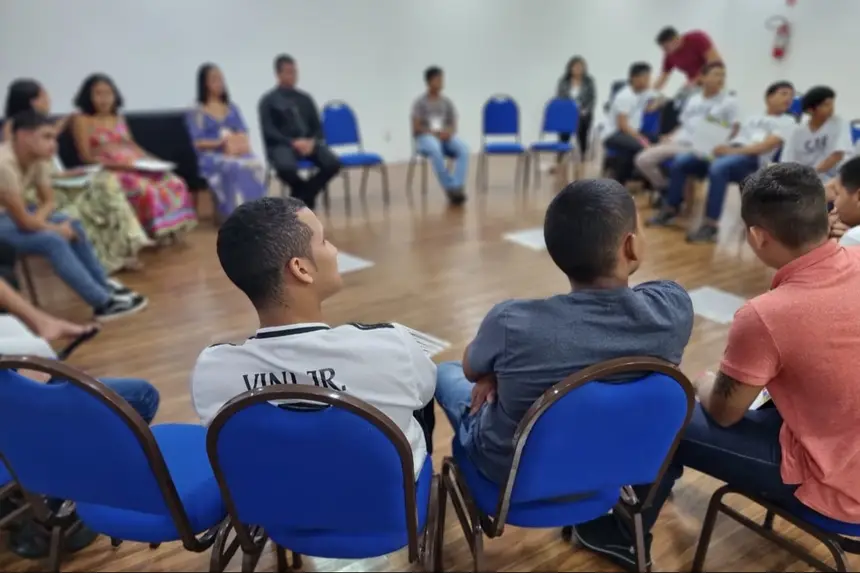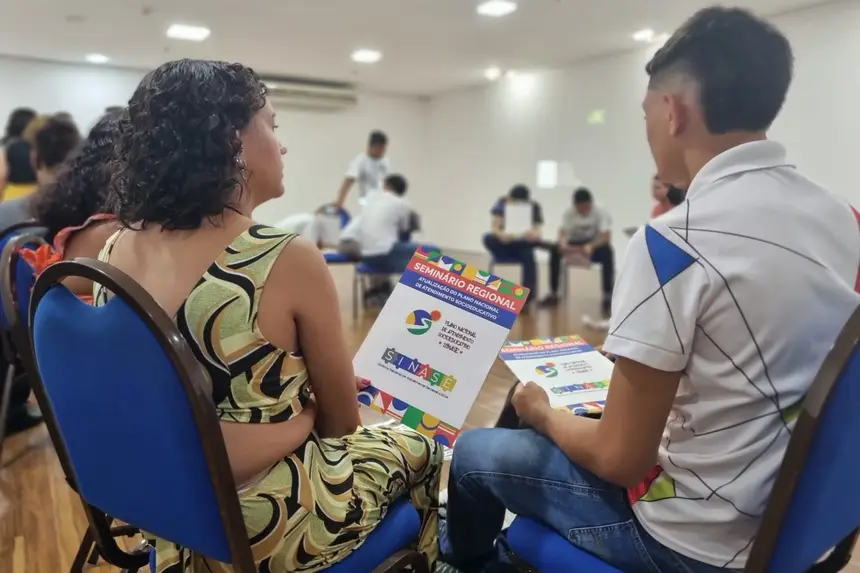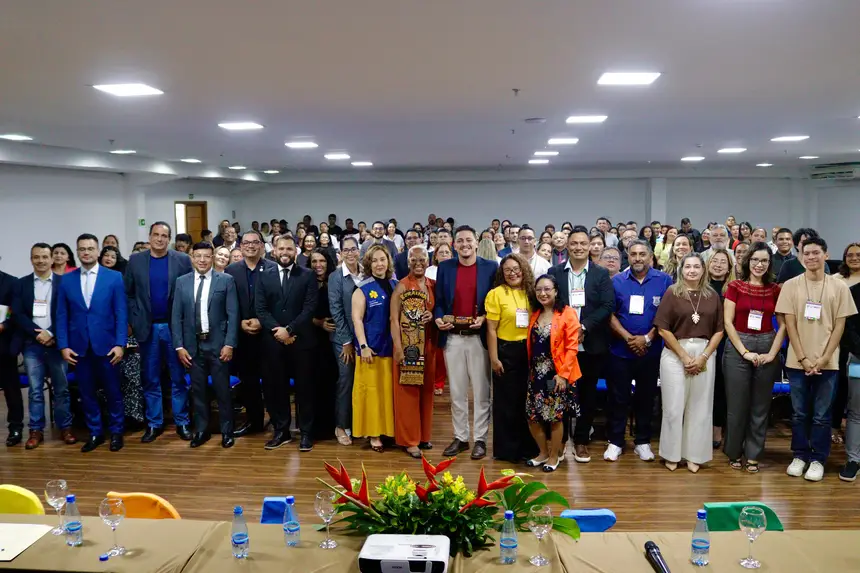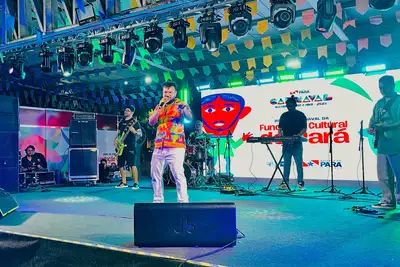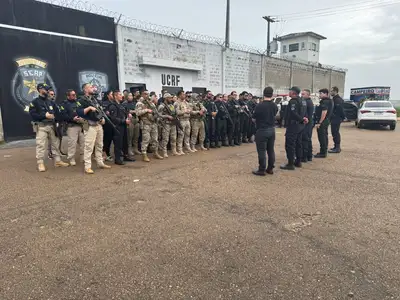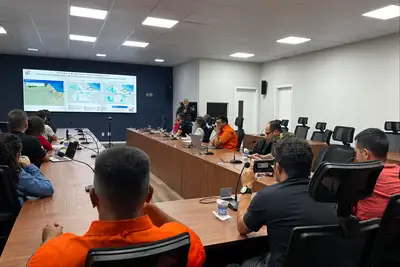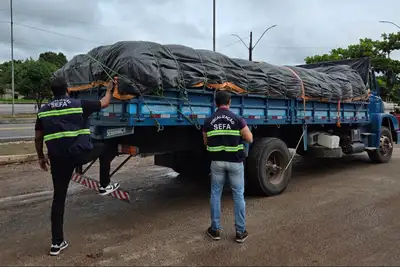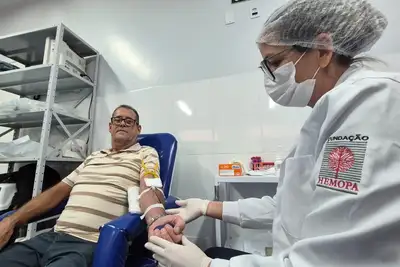Professionals and socio-educators from Fasepa participate in Regional Seminar in Manaus
The seminar concludes this Thursday (24) with the indication of groups by thematic axes for discussion of the National Socioeducational Plan
Professionals, socio-educators, and families assisted by the Pará Foundation for Socioeducational Assistance (Fasepa) participated on Wednesday (23) in the Northern Regional Seminar for updating the Decennial Plan of the Socioeducational System. The event continues until this Thursday (24), organized by the Ministry of Human Rights and Citizenship (MDHC), to strengthen the National Socioeducational Assistance System (Sinase).
According to Fasepa, for the first time, socio-educators from Pará participated in person in the regional seminar, accompanied by their families, which represents an advance in social inclusion and the protagonism of adolescents and young people undergoing socioeducational measures.
The seminar in Manaus promotes a space for qualified listening for professionals and managers of Sinase, as well as for adolescents, their families, and other social actors who are part of the socioeducational network in the Northern Region. The goal is to collectively build new guidelines for the decennial plan based on practical experiences, lived realities, and real needs.
According to the socioeducational service coordinator of Fasepa, Kátia Porfírio, the participation of socio-educators and families in the event ensures youth protagonism.
“We are experiencing a historic moment of youth protagonism among adolescents, as they are being recognized as subjects of rights and active participants in their own resocialization journey,” she stated.
“This initiative opens space for socio-educators and their families to participate effectively in the processes of discussion and construction of practices and guidelines involving the socioeducational measure. This is an advance that reaffirms Fasepa's commitment to qualified listening, citizen participation, and the promotion of a more humanized and democratic public policy,” said coordinator Kátia Porfírio.
For the president of the State Council for the Rights of Children and Adolescents of Pará (Cedca-PA), and also a Fasepa employee, Rita Dias, the active presence of young people represents a true exercise of citizenship. “It is essential that adolescents are involved in these processes. They need to participate in conferences, seminars, engage in dialogue with other young people who live similar realities, and point out what needs to be done to improve socioeducational policy,” she affirmed.
Rita Dias was part of one of the seminar panels, representing Pará, in the discussion on “Intersectoral Dialogues on Socioeducational Policy in the Context of the Rights Guarantee System.” She emphasized that it is not possible to build an effective public policy without listening to those who experience it directly.
“We need to listen to adolescents, their families, the workers on the front lines of implementing the measures, but also to other involved actors, such as the judiciary, rights defense agencies, and organized civil society. Everyone is part of the socioeducational community, and their input is essential for building a solid, participatory, and effective policy,” she concluded.
For the president of Fasepa and vice-president of Cedca-PA, Carlos Rodrigues, “the presence of adolescents and their families in this process allows for the construction of proposals aligned with their real needs, contributing to strengthen citizenship, promote accountability with dignity, and reaffirm the pedagogical nature of the system,” he reinforced.
Fasepa president Carlos Rodrigues also emphasized the advances achieved by the state government in strengthening the socioeducational system. He noted that the government has invested in integrated policies, expanding partnerships with the Rights Guarantee System (SGD) and intensifying dialogue with regional and national bodies.
“Pará has significantly evolved in socioeducational policies, promoting intersectoral articulations that place the adolescent and their family at the center of public policy,” Rodrigues stated.
Carlos Rodrigues also mentioned that the initiatives are aligned with the principles of the National Socioeducational Assistance System (Sinase), which advocates for actions based on ethical, pedagogical values, and human rights. “Our goal is to ensure increasingly fair, effective, and humanized socioeducational assistance,” he added.
Pará is in Manaus with 28 representatives from government and civil society. It is a reflective and propositional meeting with representatives from the Judiciary, State and Municipal Rights Councils, Guardianship Councils, state and municipal socioeducational technicians, socioeducators, adolescents, and their families, reaffirming the collective commitment to transforming the socioeducational reality in the country.
The program included cultural presentations by adolescents, dialogue circles, and workshops aimed at diagnosing and constructing proposals developed in the previous stage in the States. The seminar concludes this Thursday with the indication of representatives for the national seminar and with the division of groups by thematic axes, where new proposals will be discussed and elaborated to integrate the National Socioeducational Plan.
Text by Dani Valente / Ascom Fasepa



